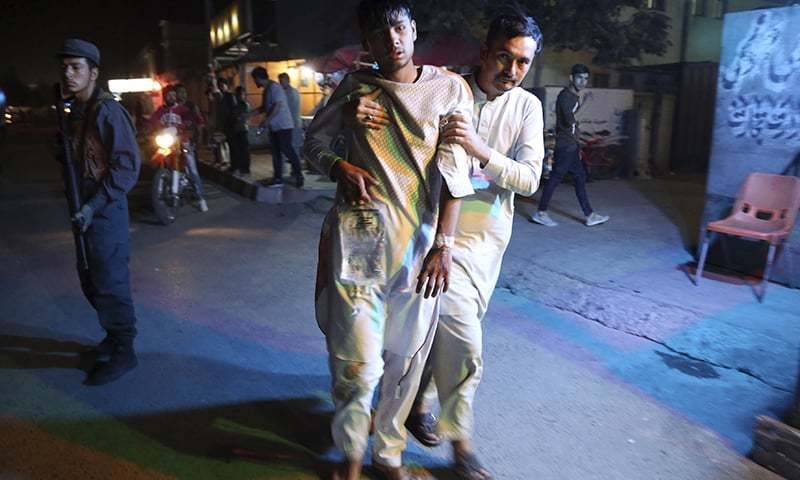At least 20 killed in twin blasts on Kabul wrestling club
Shares

Kabul: At least 20 people have been killed including two Afghan journalists after twin blasts at a Kabul wrestling club that left another 70 wounded, officials said, in the latest assault on the capital.
An hour after a suicide bomber blew himself up inside the sports hall in a heavily Shiite neighbourhood, a car packed with explosives detonated as journalists and security forces gathered at the scene, police spokesman Hashmat Stanikzai said.
At least four journalists were wounded in the second explosion, media support group NAI said.
Afghanistan's largest private broadcaster, confirmed two of their journalists were killed.
There was no immediate claim of responsibility for the twin explosions, but the Islamic State group often targets Afghanistan's minority Shiite community.
"An attack on civilians and media workers of the country is an attack on freedom of speech and crime against humanity," Afghan President Ashraf Ghani said in a statement condemning the latest violence.
A spokesman at the interior ministry said at least 20 people were killed and another 70 wounded in the blasts. An Afghan security source confirmed the casualty toll.
Civilians and members of the security forces also were among the dead and wounded.
Health ministry spokesman Wahid Majroh had earlier put the death toll at 16 people and another 60 wounded.
"I was outside when the first explosion happened, which has killed over 30 people, many of them wrestlers," Pahlawan Shir, director of the Maiwand wrestling club, told AFP.
"I was searching for my coach, I have finally found him in the... hospital. He is in a critical condition."
Social media users who purportedly witnessed the attack said the bomber killed the guards at the club before blowing himself up inside.
He "detonated inside where a large number of athletes had gathered. There are a lot of dead and wounded", Mohammad Hanif said on Facebook.
A photo posted on Twitter purportedly showed several victims being loaded into the back of a police pick-up.
APP/AFP
